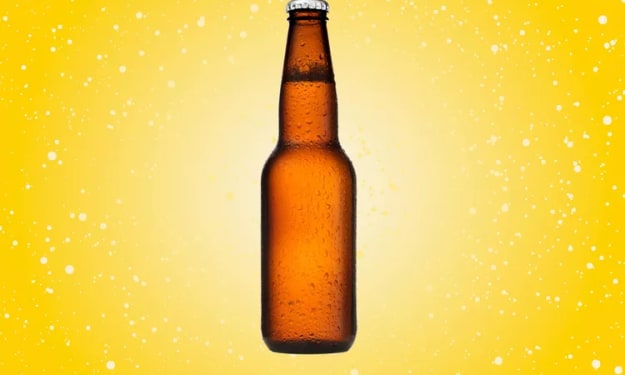From Darkness to Light: A Guide to Coping with Depression and Anxiety
The General Overview of Depression and Anxiety

Depression and anxiety are two of the most common mental health issues people face, and they often occur together. Coping with either of these conditions can be challenging, and dealing with both at the same time can be overwhelming. However, there are ways to manage and overcome these feelings of darkness and despair. It is noteworthy that depression and anxiety are two separate mental health conditions, but they often co-occur and share some common symptoms. Both depression and anxiety can significantly impact a person's quality of life, and it's important to seek professional help if you or someone you know is experiencing symptoms.
This guide aims to provide a roadmap for those struggling with depression and anxiety to find their way from darkness to light. It covers a range of coping strategies that can help people take control of their mental health and start to feel better.
Overview of Depression and Anxiety
What is Depression?
Depression is a mental health condition that affects a person's mood, thoughts, and behavior. It is also known as major depressive disorder or clinical depression. Depression is characterized by persistent feelings of sadness, hopelessness, and a loss of interest or pleasure in activities that used to be enjoyable.
It is a mood disorder characterized by persistent feelings of sadness, hopelessness, and a loss of interest in activities that used to bring pleasure. People with depression may also experience changes in appetite, sleep disturbances, fatigue, difficulty concentrating, and feelings of worthlessness or guilt. In severe cases, depression can lead to suicidal thoughts or behaviors.
People with depression may also experience physical symptoms such as changes in appetite, sleep disturbances, fatigue, difficulty concentrating, and feelings of worthlessness or guilt. In severe cases, depression can lead to suicidal thoughts or behaviors.
Depression can be caused by a combination of genetic, environmental, and psychological factors. Traumatic life events, such as the loss of a loved one, a serious illness, or a traumatic experience, can also trigger depression.
Treatment for depression typically involves a combination of medication and therapy. Antidepressant medication can help alleviate symptoms, while therapy can help people learn coping skills and strategies to manage their symptoms.
Depression is a treatable condition, and seeking professional help can make a significant difference in a person's mental health and overall well-being. If you or someone you know is struggling with depression, it's important to reach out for help and support.
What is Anxiety?
Anxiety is a mental health condition characterized by excessive worry or fear about real or imagined events or situations. It is a normal and sometimes useful response to stress or danger, but for people with anxiety disorders, these feelings can be intense, persistent, and interfere with daily life.
There are several types of anxiety disorders, including generalized anxiety disorder, panic disorder, social anxiety disorder, and specific phobias. Symptoms of anxiety can include physical sensations such as a rapid heartbeat, sweating, trembling, and shortness of breath, as well as cognitive symptoms such as excessive worry, racing thoughts, and difficulty concentrating.
Anxiety can be caused by a variety of factors, including genetics, brain chemistry, and life experiences. Traumatic events, chronic stress, and a family history of anxiety can all increase a person's risk of developing an anxiety disorder.
Effective treatments for anxiety disorders include therapy, medication, or a combination of both. Cognitive-behavioral therapy (CBT) is a common type of therapy used to treat anxiety, which teaches individuals to identify and challenge negative thoughts and beliefs that contribute to anxiety. Medications such as selective serotonin reuptake inhibitors (SSRIs) or benzodiazepines can also be effective in reducing anxiety symptoms.
Causes of Depression and Anxiety
Genetics
A family history of depression or anxiety can increase a person's risk of developing these conditions. Research has shown that certain genes may be involved in the development of these conditions. While genetics is not the sole cause of depression or anxiety, having a family history of these conditions can increase a person's susceptibility to them.
Brain Chemistry
Depression and anxiety are thought to be caused, in part, by imbalances in certain brain chemicals called neurotransmitters, including serotonin, norepinephrine, and dopamine. Serotonin is a chemical that regulates mood, while norepinephrine and dopamine are involved in the body's stress response. An imbalance in these chemicals can lead to symptoms of depression or anxiety.
Trauma and Stress
Traumatic events, such as physical or emotional abuse, neglect, or the death of a loved one, can trigger depression or anxiety. Chronic stress, such as work stress, financial stress, or relationship problems, can also contribute to these conditions. Traumatic events and chronic stress can lead to changes in brain chemistry, affecting a person's mood and overall mental health.
Environmental Factors
Environmental factors, such as living in poverty, exposure to violence, or living in a dysfunctional family, can increase a person's risk of developing depression or anxiety. These environmental factors can lead to chronic stress and trauma, affecting a person's mental health.
Medical Conditions
Certain medical conditions, such as chronic pain, cancer, or heart disease, can increase a person's risk of developing depression or anxiety. These conditions can cause physical and emotional stress, leading to changes in brain chemistry and affecting a person's mental health.
Substance Abuse

Substance abuse, including alcohol and drug use, can increase a person's risk of developing depression or anxiety. Substance abuse can lead to changes in brain chemistry, as well as cause social and financial stressors, contributing to mental health problems.
Personality Traits

Certain personality traits, such as low self-esteem, pessimism, or being highly sensitive, can increase a person's risk of developing depression or anxiety. Negative thought patterns and behaviors can contribute to depression or anxiety, leading to a negative cycle of thoughts and emotions.
Hormonal Imbalances
Hormonal imbalances, such as those that occur during pregnancy or menopause, can contribute to depression or anxiety. Hormonal imbalances can also occur as a result of certain medical conditions, such as thyroid problems.
Seasonal Changes
Some people experience seasonal affective disorder (SAD), a type of depression that occurs during the fall and winter months when there is less natural sunlight. The lack of sunlight can affect the body's natural circadian rhythms and lead to depression.
Lack of Social Support

A lack of social support, such as not having close friends or family members to rely on, can contribute to depression and anxiety. Social support can provide emotional validation, comfort, and practical assistance in times of need.
Negative Life Events
Negative life events, such as job loss, divorce, or financial problems, can contribute to depression and anxiety. These events can cause stress and disrupt a person's sense of stability and control.
Perfectionism
Perfectionism is a personality trait characterized by a need to be flawless and fear of making mistakes. Perfectionism can contribute to depression and anxiety by setting unrealistic expectations and leading to self-criticism and negative self-talk.
Childhood Experiences
Childhood experiences, such as abuse, neglect, or poverty, can contribute to depression and anxiety later in life. These experiences can affect a person's sense of self-worth, ability to cope with stress, and overall mental health.
Cultural and Societal Factors
Cultural and societal factors, such as discrimination, stigma, or societal pressures, can contribute to depression and anxiety. These factors can affect a person's sense of belonging and acceptance, leading to feelings of isolation and anxiety.
How to Treat Depression and Anxiety
Therapy: Therapy can help people with depression and anxiety identify and address the underlying causes of their symptoms. Cognitive-behavioral therapy (CBT) is a common type of therapy used to treat depression and anxiety. CBT focuses on identifying negative thought patterns and behaviors and replacing them with more positive ones.
Medication: Antidepressant and anti-anxiety medications can be effective in treating depression and anxiety. These medications work by balancing the levels of neurotransmitters in the brain. It's important to work with a doctor to determine the appropriate medication and dosage.
Lifestyle changes: Making lifestyle changes can help manage symptoms of depression and anxiety. Exercise, healthy eating, and getting enough sleep can improve overall physical and mental health. Additionally, engaging in activities that bring joy and fulfillment, such as hobbies or socializing, can boost mood and reduce symptoms.
Stress reduction techniques: Learning stress reduction techniques, such as deep breathing, meditation, or yoga, can help manage symptoms of depression and anxiety. These techniques can help reduce the physical symptoms of stress and promote relaxation.
Support groups: Joining a support group for people with depression or anxiety can provide emotional support and validation. Support groups can also provide opportunities for learning coping strategies and socializing with others who understand the experience of living with depression or anxiety.
Self-care: Practicing self-care can help manage symptoms of depression and anxiety. This can include taking time for oneself, engaging in activities that bring joy and relaxation, setting boundaries with others, and prioritizing one's own physical and mental health.
Mindfulness practices: Mindfulness practices, such as mindfulness-based stress reduction (MBSR), can be effective in managing symptoms of depression and anxiety. MBSR involves learning to focus attention on the present moment without judgment. This can help reduce feelings of worry and rumination.
Alternative therapies: Some people find alternative therapies, such as acupuncture or massage, helpful in managing symptoms of depression and anxiety. While research on the effectiveness of alternative therapies is limited, some people find these treatments helpful as part of a comprehensive treatment plan.
Interpersonal therapy: Interpersonal therapy (IPT) is a type of therapy that focuses on improving interpersonal relationships and social support. IPT can be effective in treating depression and anxiety, particularly when social factors are a significant contributor to symptoms.
Medication-assisted therapy: Medication-assisted therapy (MAT) involves combining medication with therapy to treat depression and anxiety. This approach can be particularly helpful for people who have not responded well to other treatments.
TMS therapy: Transcranial magnetic stimulation (TMS) is a non-invasive treatment that involves using a magnetic field to stimulate nerve cells in the brain. TMS therapy can be effective in treating depression that has not responded well to other treatments.
Hospitalization: In severe cases, hospitalization may be necessary to manage symptoms of depression and anxiety. Hospitalization can provide intensive treatment and support, including medication management, therapy, and monitoring of physical health.
Final Thoughts
From Darkness to Light: A Guide to Coping with Depression and Anxiety is a comprehensive resource for anyone struggling with these common mental health conditions. By providing practical coping strategies, highlighting the importance of social support and self-care, and offering hope for a brighter future, this guide can help individuals take control of their mental health and start to feel better.
The guide to coping with depression and anxiety starts with an overview of depression and anxiety, including their causes and symptoms. It also discusses the link between the two conditions and why they often occur together. Understanding the root causes of depression and anxiety can be a crucial first step in developing effective coping mechanisms. It then explores a range of coping strategies that can help individuals manage their symptoms.
These strategies include lifestyle changes such as exercise, diet, and sleep hygiene, as well as therapies like cognitive-behavioral therapy (CBT) and mindfulness meditation. The guide also discusses medication options and when they may be appropriate. The importance of social support is also emphasized, as isolation and loneliness can worsen symptoms of depression and anxiety. The guide provides tips on how to reach out to friends and family for support, as well as resources for finding professional help if needed.





Comments
There are no comments for this story
Be the first to respond and start the conversation.